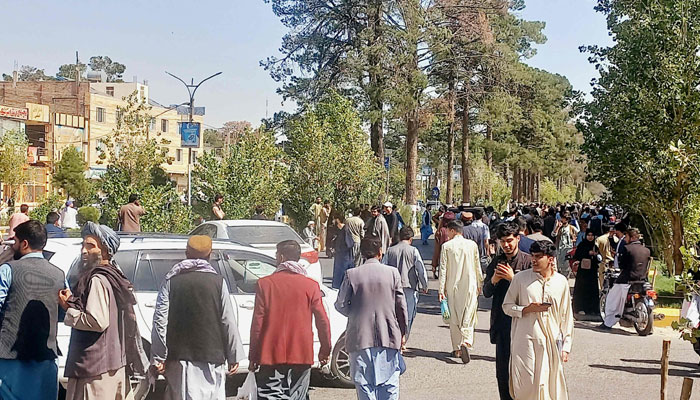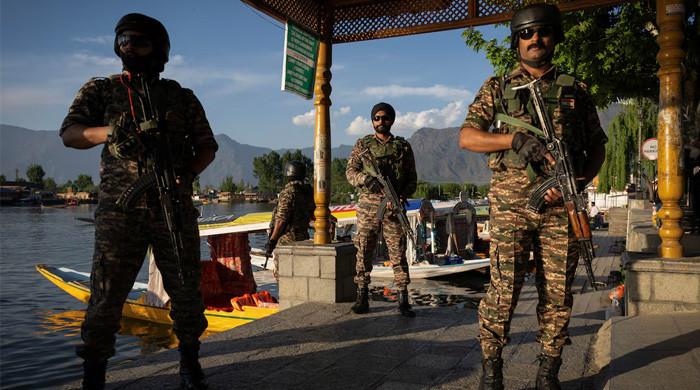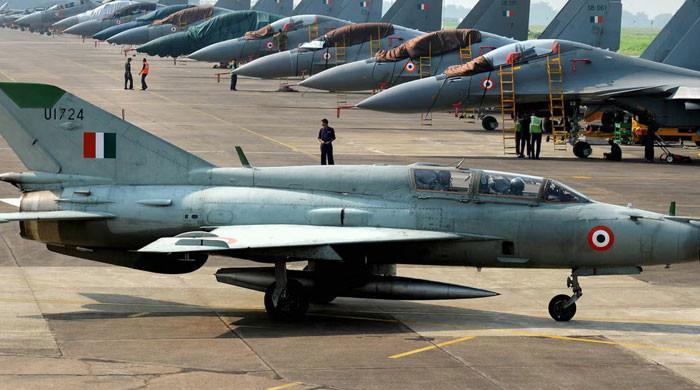Magnitude 6.3 earthquake kills at least one, injures dozens in Afghanistan
Officials predict toll could rise amid reports of landslides and building collapses
October 07, 2023

- Epicentre was 40 kilometres northwest of region´s largest city Herat.
- "We were in our offices and suddenly building started shaking," says resident.
- "Significant casualties are likely, disaster is potentially widespread."
At least one person was killed and dozens were injured after a magnitude 6.3 earthquake hit western Afghanistan on Saturday, officials said.
The officials feared that the toll could rise amid reports of landslides and building collapses.
The United States Geological Survey said the epicentre was 40 kilometres (25 miles) northwest of the region´s largest city of Herat, and was followed by five aftershocks with magnitudes of 5.5, 4.7, 6.3, 5.9 and 4.6.
Crowds of residents and shopkeepers fled buildings in the city at around 11:00 am (0630 GMT) as the quakes began, causing 25 injuries and a single fatality, according to a Taliban government spokesperson.
"We were in our offices and suddenly the building started shaking," 45-year-old Herat resident Bashir Ahmad told AFP. "Wall plasters started to fall down and the walls got cracks, some walls and parts of the building collapsed."
"I am not able to contact my family, network connections are disconnected. I am too worried and scared, it was horrifying," he said.
National Disaster Management Authority spokesman Mullah Jan Sayeq told AFP the initial toll was "preliminary" and he feared it would rise as "in the rural and mountainous areas there have been landslides as well".
"Currently, we don´t have all the information and details," he said.
´Disaster potentially widespread´
Crowds of women and children stood out in the wide streets of Herat, away from tall buildings, in the moments after the first quake and aftershocks which continued for over an hour.
Hundreds of fatalities were possible, according to a USGS preliminary report.
"Significant casualties are likely and the disaster is potentially widespread. Past events with this alert level have required a regional or national level response," it said.
USGS had earlier reported the first quake´s magnitude as 6.2. It had a shallow depth of just 14 kilometres, it said.
Herat — 120 kilometres east of the border with Iran — is considered the cultural capital of Afghanistan.
It is the capital of Herat province which is home to an estimated population of 1.9 million, according to 2019 World Bank data.
In June last year, more than 1,000 people were killed and tens of thousands made homeless after a 5.9-magnitude quake — the deadliest in Afghanistan in nearly a quarter of a century — struck the impoverished province of Paktika.
In March of this year, 13 people were killed in Afghanistan and Pakistan by a magnitude 6.5 quake, which hit near Jurm in northeastern Afghanistan.
The country is frequently hit by earthquakes, especially in the Hindu Kush mountain range, which lies near the junction of the Eurasian and Indian tectonic plates.
Afghanistan is already in the grip of a grinding humanitarian crisis, following the widespread withdrawal of foreign aid since the Taliban returned to power in 2021.











